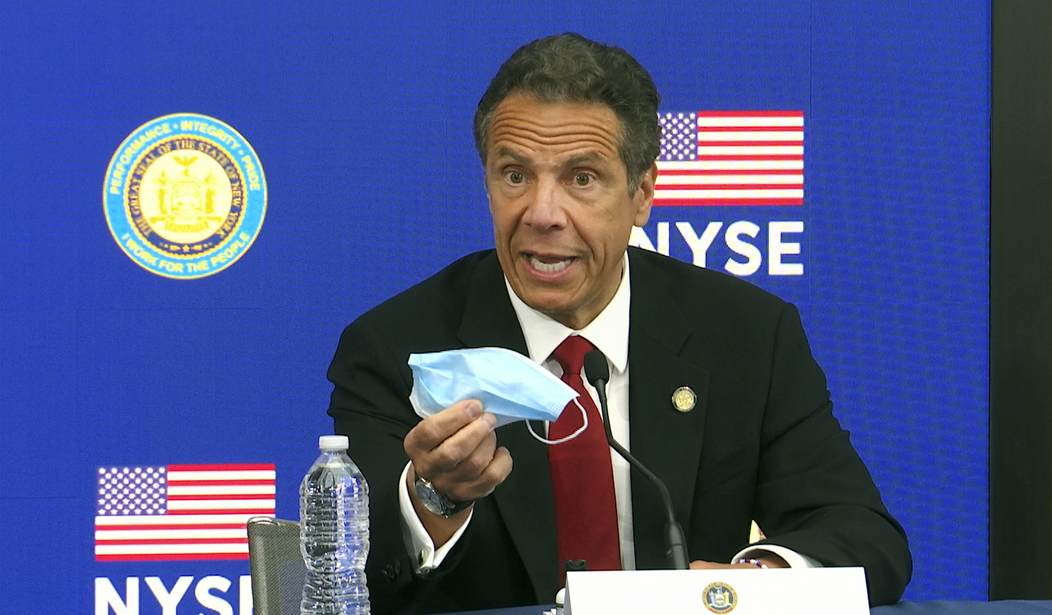With face mask mandates being lifted in many parts of the country, even in schools, many Americans seem to be very relieved by the prospect of ditching the face coverings and attempting to get back to normal. But that’s not true for everyone. Despite multiple studies showing that non-surgical grade masks, particularly the cloth ones, do little or nothing to protect people from COVID, a hard-core subset of people seems to have adopted mask-wearing as the “new normal.” Those nervous individuals will likely be further encouraged by the results of a new study that was just released by the Cardiff University School of Psychology in Great Britain. Their researchers found that people viewed masked faces as being “more attractive” than uncovered faces. So even if you’ve given up on the idea of wearing them for health-related reasons, you can just continue to do it because the mask will make you “look hotter.” (NY Post)
Wearing a mask makes you more attractive, a study published in the Cognitive Research Principles and Implications Journal found. (If only someone had told all Karen’s before their raging fits.)
Blue medical masks were associated with being the most attractive, and cloth masks were a close second still making faces “significantly more attractive,” according to researchers at Cardiff University’s School of Psychology in the UK.
“Our study suggests faces are considered most attractive when covered by medical face masks,” co-author Michael B. Lewis told The Guardian.
Just to get the obvious bit of juvenile humor out of the way, I’m sure there are plenty of people out there who some might find more attractive if they covered up part of their face. I’ll happily include myself in that crowd. A good friend used to enjoy telling me that I have “a face for radio and a voice for print.”
All kidding aside, however, does this really make sense to anyone? If you’re someone who remains extremely concerned about catching COVID I can at least understand the sight of a face mask making you feel more comfortable and less alarmed, regardless of the actual efficacy of these medical accessories. But more attractive? That seems like a bit much to swallow.
Looking into the details of the linked study, we learn that prior to the pandemic, similar studies were conducted by psychologists. Most people used to associate the sight of a medical face mask with “an image of disease,” leading to a lower attractiveness rating. This is known to psychologists as the “sanitary-mask effect.” But the results of this study suggest that a rapid and dramatic shift took place over two years of pandemic precautions, at least according to the study’s authors.
Participants were shown four different pictures of people and asked to rate their attractiveness. In one photo the person was wearing a surgical mask. In the second they wore a cloth mask. The third depicted them reading and holding a book covering the lower half of their face. The final picture was of the subject’s face with no covering at all. Incredibly, the surgical mask pictures received the highest attractiveness rating while the uncovered face received the lowest.
One potential hitch in these findings comes from the fact that all of the participants were women rating the attractiveness of male faces. This leaves out more than half of the population from the sample group when you factor in the potentially differing preferences of gays and lesbians. We’ve typically seen claims from researchers that men and women rank attractiveness very differently, both in terms of the specific facial features they find attractive and how much importance they place on physical attractiveness when selecting a mate. A second study measuring the responses of men looking at pictures of women is currently underway at the university and I suspect the results might be significantly different.
But even if we’re leaving gender out of the question, this still just seems wrong and flies in the face of reason. I can definitely understand how there can be value in getting to know someone first via correspondence and how that could strengthen potential bonds before actually seeing each other in person. But if we’re talking about nothing more than the surface-level idea of someone having attractive facial features, how would a majority of people possibly choose a face that is half-hidden? Unless, of course, it’s the sort of face you really wouldn’t want to look at in the first place. But the study assures us that the results are “not simply due to occlusion of negative features.” Perhaps. But as I said, this still doesn’t make any sense to me.









Join the conversation as a VIP Member